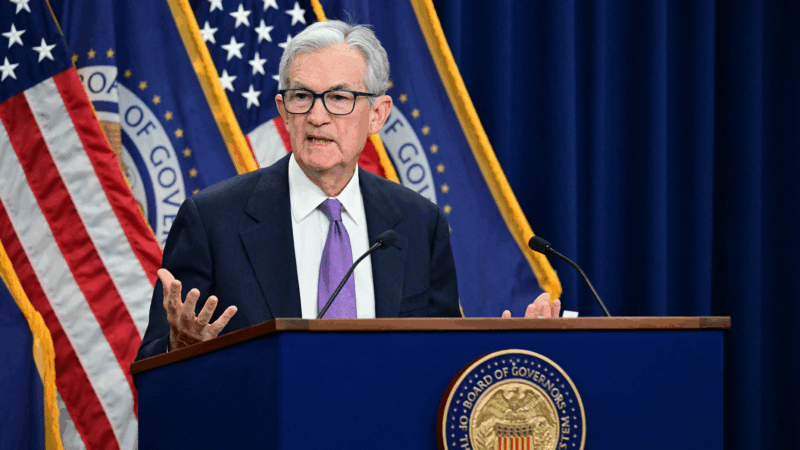This was the week that comedy pushed back
It was the week that comedy hit back. Hard.
Here’s what I mean: When federal regulators on Thursday approved entertainment conglomerate Paramount’s $8-billion merger with Skydance, media analysts like me began to wonder.
The approval came about a week after Paramount-owned CBS announced that it was cancelling The Late Show, currently hosted by Stephen Colbert — a comic who hasn’t been shy in his criticism of President Trump and his administration. Many inquiring minds asked: Could moves to limit a prominent and vocal detractor of the president have helped the deal along?
But if anyone thought Colbert’s cancellation — which won’t come until his contract ends in May 2026 — might tamp down political commentary in other areas of Paramount’s media empire, they learned differently this past week.
Jon Stewart kicked things off last Monday while hosting The Daily Show, which airs on Paramount-owned Comedy Central. He offered a blistering monologue that questioned CBS’s statement asserting Colbert’s cancellation was “purely a financial decision,” eventually joining a gospel choir to sing “go f— yourself” to media companies, law firms, universities and other institutions that might censor themselves to avoid angering the government.
“The shows that you now seek to cancel, censor and control … a not insignificant portion of that $8 billion value came from those shows,” Stewart noted, passionately. “That’s what made you that money.”

But the real surprise came when another Comedy Central show, South Park, released the first episode of its 27th season on Wednesday. The show’s creators, Trey Parker and Matt Stone, had just completed tough negotiations to reach a five-year, $1.5-billion deal with Paramount over new episodes and streaming rights — providing a lot of reasons to feel good about working with the company.
Anyone who has tracked Stone’s and Parker’s rebellious streak over the years could guess what happened next. Their season premiere “Sermon on the Mount,” was a savagely pointed, often crude satire — of President Trump, Paramount’s cancellation of Colbert, the rise of Christian nationalism in the United States, the demonization of woke ideology, Trump’s strategy of using lawsuits to intimidate critics, and much more.
(They even lampooned stereotypes about NPR while referencing Congress’ recent vote to take back previously approved funding for public media. A character — who is a fan — called the network “the funniest show ever, where all the lesbians and Jews complain about stuff.” Which, I gotta admit, made me chuckle a bit.)

While the pushback on South Park wasn’t surprising to me, the intensity of the barbs were eye-opening. They showed an animated Trump propositioning Satan in bed, depicted Jesus Christ warning a crowd about the danger of a president who could sue them and presented several scenes lampooning the president’s, um, anatomy – something Parker and Stone said brought some debate with Comedy Central executives.
Viewed through a show business lens, this was a classic case of South Park doing what it does best — poke a finger in the eye of what’s expected and accepted. Parker and Stone know the company has already ponied up a ton of money to stay in business with them — and the one thing their fans likely wouldn’t forgive is any sense that revenue from a big deal would blunt their satirical chops.
It also doesn’t hurt that the first new episode of a show in its 27th season features pungent barbs focused on one of the biggest stories in show business. I have a hunch any hurt feelings at Paramount or Comedy Central will be soothed by the monster ratings the episode will likely generate, adding to the sense that South Park remains relevant and worth the dollars the company is spending. Well-played.
While all this was happening last week, Colbert also contributed to the conversation with monologues of his own. He promised “for the next 10 months, the gloves are off” — a vow he lived up to moments later, while cracking a joke about Trump’s reaction to his cancellation.
Imitating the president’s voice, Colbert noted: “On Friday, Donald Trump posted ‘I absolutely love that Colbert got fired. His talent was even less than his ratings.’ How dare you sir? Would an untalented man be able to compose the following satirical witticism: Go f*** yourself.”
In that monologue this past Monday and the rest of his monologues last week, Colbert hinted he doesn’t completely believe CBS’ assertion that his cancellation was just a financial decision and mocked reporting, which cited anonymous sources, saying his show lost between $40 and $50 million in a year.
The previous host of The Late Show, David Letterman, also weighed in last week. Speaking in a video with former Late Show producer Barbara Gaines, Letterman called CBS’ cancellation of Colbert “pure cowardice” and expressed skepticism it was purely about finances. Letterman, who famously tussled with executives at both CBS and NBC when he hosted late night shows, said the company “did not handle Stephen Colbert, the face of that network, in the way he deserves.”
What I think we’ve learned this week is that comedians and satirists have a more direct and dramatic way to push back against real or perceived corporate pressure — showing fans right away they will not be intimidated.
News outlets targeted with similar pressures might have to wait for the next high-profile news story to show their independence — staffers at 60 Minutes still face skepticism from the public, after tensions over Paramount’s $16-million lawsuit settlement with President Trump led two executives at CBS News to resign.
But comics and satirists, like Stewart, Colbert, Parker and Stone, can step up while the world is watching to make their points — well aware that, if their shows are canceled, they’re gonna need loyal audiences who value their voices to follow them wherever they land next.
Judge rules 7-foot center Charles Bediako is no longer eligible to play for Alabama
Bediako was playing under a temporary restraining order that allowed the former NBA G League player to join Alabama in the middle of the season despite questions regarding his collegiate eligibility.
American Ben Ogden wins silver, breaking 50 year medal drought for U.S. men’s cross-country skiing
Ben Ogden of Vermont skied powerfully, finishing just behind Johannes Hoesflot Klaebo of Norway. It was the first Olympic medal for a U.S. men's cross-country skier since 1976.
An ape, a tea party — and the ability to imagine
The ability to imagine — to play pretend — has long been thought to be unique to humans. A new study suggests one of our closest living relatives can do it too.
How much power does the Fed chair really have?
On paper, the Fed chair is just one vote among many. In practice, the job carries far more influence. We analyze what gives the Fed chair power.
‘Please inform your friends’: The quest to make weather warnings universal
People in poor countries often get little or no warning about floods, storms and other deadly weather. Local efforts are changing that, and saving lives.
In a world built for sitting, here’s how to stay active — even when stuck inside
In the office, classroom and living room, working and relaxing mean sitting still. Our bodies evolved without chairs. Here are some tips for getting out of your seat and moving — even on cold days.








